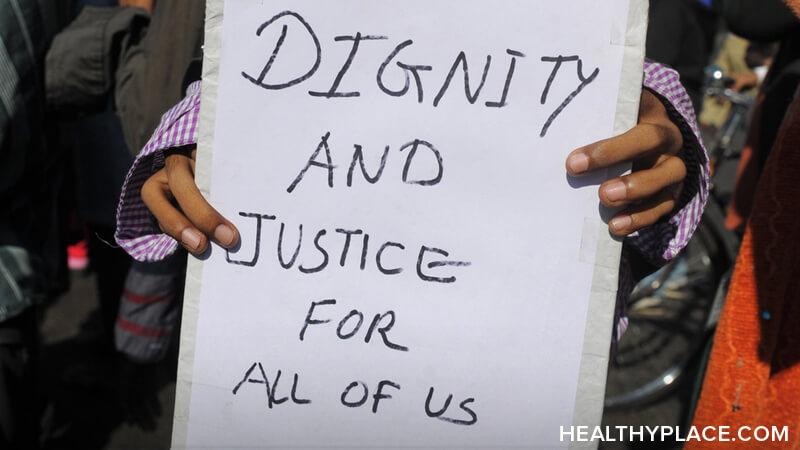Eating Disorder Recovery Introduced Me to Social Justice

Social justice and eating disorder recovery are two of the driving forces in my life. These inform my relationships, conversations, and writing, but I cannot take credit for this—eating disorder recovery introduced me to social justice.
This is a topic I discuss often because I am passionate about doing my part—however small—to create environments of kindness, dignity, inclusion, and respect for all human beings. That was not always the case, though. In the depths of my battle with anorexia, I was self-centered, manipulative, insular, apathetic, and reckless with no consideration for people on the margins around me. The painful, intentional work of eating disorder recovery introduced me to social justice, a concept I was oblivious to before yet have not been able to turn away from since.
Eating Disorders Are Connected to Social Justice Issues
In order to dissect the link between eating disorders and social justice, it's necessary to first examine the role of privilege—which I benefit from. As a white female with a naturally thin frame, it has never taken much persuasion for others to believe that I suffered from an eating disorder. I embody the cultural perception of a recovering anorexic, so if I disclose this to friends, relatives, therapists, or doctors, in most cases, those people take me at my word.
Moreover, as someone raised middle-class, when my deteriorating health required inpatient care, I did not have to worry about the financial burden. My parents' insurance granted me access to skilled physicians, counselors, and dietitians who changed the course of my life as a teenager. Even now, 10 years later, I can still afford weekly sessions with a therapist—a luxury I do not take for granted—another form of privilege.
Why have I gone into such detail to emphasize that I had family support, eating disorder treatment interventions, and financial resources to aid me in recovery? The answer is simple—because not all people with eating disorders are offered that same experience. In fact, I remember another patient at my treatment facility, a woman of color in her 30s who had been admitted to the program directly from a homeless shelter. I will never forget how she spent hours on the phone with insurance companies and pled with them for the coverage she needed to continue being treated. No one else would come to her defense, so this woman became her own advocate—but all this tenacity fell on deaf ears, and she was removed from the program due to a lack of finances.
What I've Learned About Eating Disorders and Social Justice
Meanwhile, I roamed the sterile, fluorescent corridors of that hospital with a scowl etched on my face, unaware of just how fortunate I was to be there. I did not appreciate—or even understand—this rare opportunity to heal which was available to me but denied to others. It took almost a decade for me to realize that privilege has made my path to recovery much smoother and accessible than it would have been otherwise.
This is not to insinuate that eating disorder recovery is a breeze—it's a tough process for anyone to embark on—but marginalized or economically disenfranchised groups face a unique hardship of being overlooked, under-resourced, and often not taken seriously. But when I chose to heal from anorexia, I left behind the self-absorption that used to rule my life. Eating disorder recovery introduced me to social justice, and now I am on a mission to remind everyone else in the midst of this struggle that health and wholeness are in reach for them too—no matter their background.
APA Reference
Schurrer, M.
(2020, January 8). Eating Disorder Recovery Introduced Me to Social Justice, HealthyPlace. Retrieved
on 2026, January 2 from https://www.healthyplace.com/blogs/survivinged/2020/1/eating-disorder-recovery-introduced-me-to-social-justice